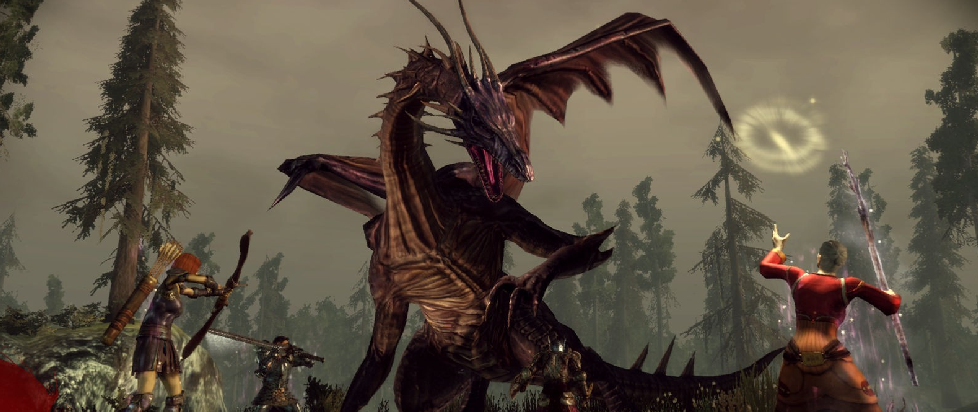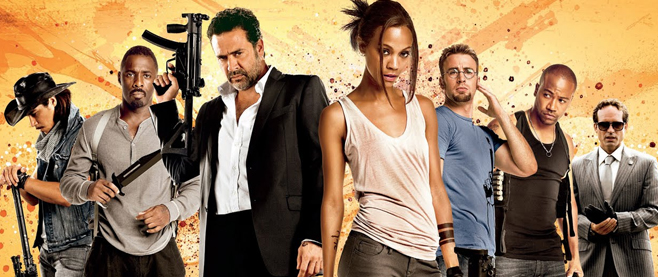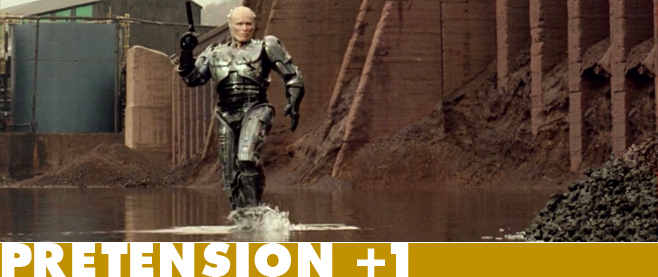
Who We Are
Role-playing becomes a powerful tool in the right hands, and using games as its conduit makes inhabiting different roles easier to explore. After all, you’re taking on a role for progressing through a game. But the practice takes on special meaning for me whenever I embody a character I created. It becomes a doorway to explore things that I couldn’t always freely do otherwise. I can be whoever I want, and do things that I was often otherwise prevented from doing due to the need to survive in a straight world. That outlet allowed me to learn more about myself and grow into who I know I am inside. And, more and more, games are allowing us to explore queer relationships explicitly, without the need for the safety of innuendo or compartmentalizing. Who we are, who we want to be and who we love can all intermingle with one another, and role-playing can help sort it out.
When I was growing up, I always used to try to make my ideal self in character creators. He’d be bald or have some other military-inspired haircut, muscular and maybe some crazy facial hair. He was usually a fighter or other melee-focused class, basically embodying everything I thought I lacked. It’s because I was able to project some part of myself into each character I created, wish fulfillment that I could be the someone I always wanted to be. This is at the center of most power fantasies, but it meant more to me than that. As a queer kid growing up in an environment that wasn’t the most approving of queerness, having a space to make sense of what was inside of me helped me come to terms with my sexuality little by little. Not that I ever fully accepted myself until my early 30s, as I had a lot of years of shame left to work through. But even when I wouldn’t allow myself to be the gay man I knew deep down that I was, games let me play at the idea, giving myself an out in which to explore the taboo.
But then, gay people have been playing roles to explore themselves for generations now. Theatre as a means of role-playing is the obvious example, but a more potent one that illustrates the struggle between our self and our feelings is the ballroom culture depicted in the documentary Paris is Burning. The balls of Harlem were where LGBT people flocked to embody roles in contests seeing who could embody them best. Drag was given the main spotlight, but there were many, many other categories that revealed people’s need to see themselves a certain way, with “Businessman” and “Military” looks being two the film highlights. These contests let people explore certain roles that they would ordinarily have been locked out of due to the realities of how the world reacted to the queer community at the time. It allowed them to explore an aspect of who they are that would ordinarily have been closed off to them.
Also incredibly telling is the “Straight Realness” category, where people do their best straight imitation: looking straight, acting straight and basically able to blend in with the straight world. That’s a desire I know I envied even though most people had no idea I was gay. I’d occasionally get asked if I was because of my speech patterns, but I mostly got by without arousing much suspicion. Still, blending in wasn’t what allured me. It’s the desire to be “normal” that I really clung onto. As a gay person, “normal” seemed out of reach, and life would have been so much easier if I could have been “normal,” a.k.a. straight, instead of gay. While these aren’t the most constructive thoughts to have, it’s useful to work through them to really examine them.
Games take on a similar role to the Harlem balls, though on a more personal scale. Character creation tools helped me by showing me the nature of my desires, tangled though they may have been at the time. In Dragon Age: Origins, I created a bald dwarf who was stout, sturdy and strong. In other words, an embodiment of everything I wanted to be. Soon after I found my way to the biggest city in the game, I found a brothel that offered services for all orientations. I was intrigued, so I partook of the dwarf gay sex option and witnessed a very stilted scene in which two dwarves were sort of entwined with one another without showing anything salacious. Still, it was enough to arouse my interest and made me realize that who I wanted to be and who I wanted to be with were inexorably tied.
And for as awkward as those sex scenes are, BioWare deserves credit for letting people explore romances in their games, clunky though they may be. My playthrough of the Mass Effect games was my “Straight Realness” moment. The romances I pursued were Liara and Miranda, the straightest, most male options you could go for. Again, this was me really desiring to be “normal” and not some freak, so I tried on the guise of a badass straight man with a heart of gold who could really reel in the ladies. I remember vividly the scene right before my Shepard had sex with Miranda that framed the scene on a butt shot of her, thinking that this must be arousing but never quite believing myself. Acting straight in the Mass Effect games was incredibly useful to me because it let me try on a role and examine what that meant to me.
The reason role-playing in games works so well is that it lets you take an aspect of yourself out of yourself and put it in front of you so you can try to work out what it means. You simultaneously remove and embody something about yourself that you want to wrestle with. That it’s in the context of a game allows the concept to breathe and feel more natural instead of putting it under a microscope and overanalyzing it. Games have the power to compartmentalize a way that you’re feeling and force you to reckon with it, an introspective tool in the way all good art can be. That’s one of the only tools I had for making sense of this whole gay thing, and I know I’m not alone. Sometimes we need to step outside of ourselves so we can get closer to seeing who we really are.





